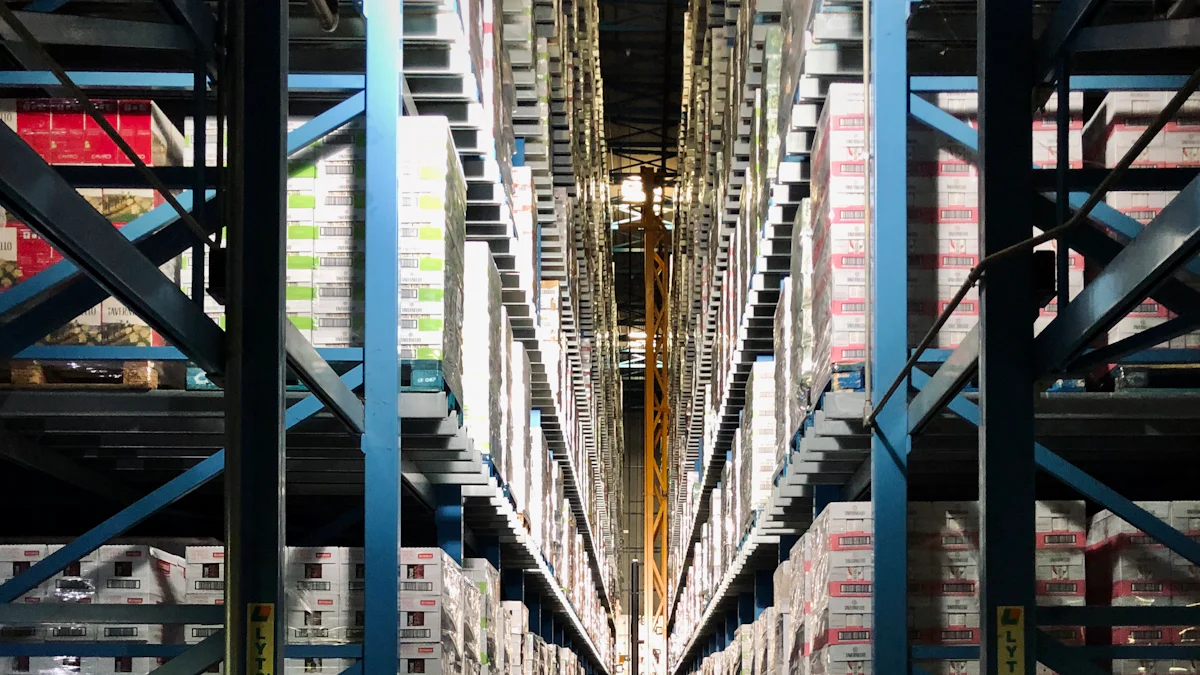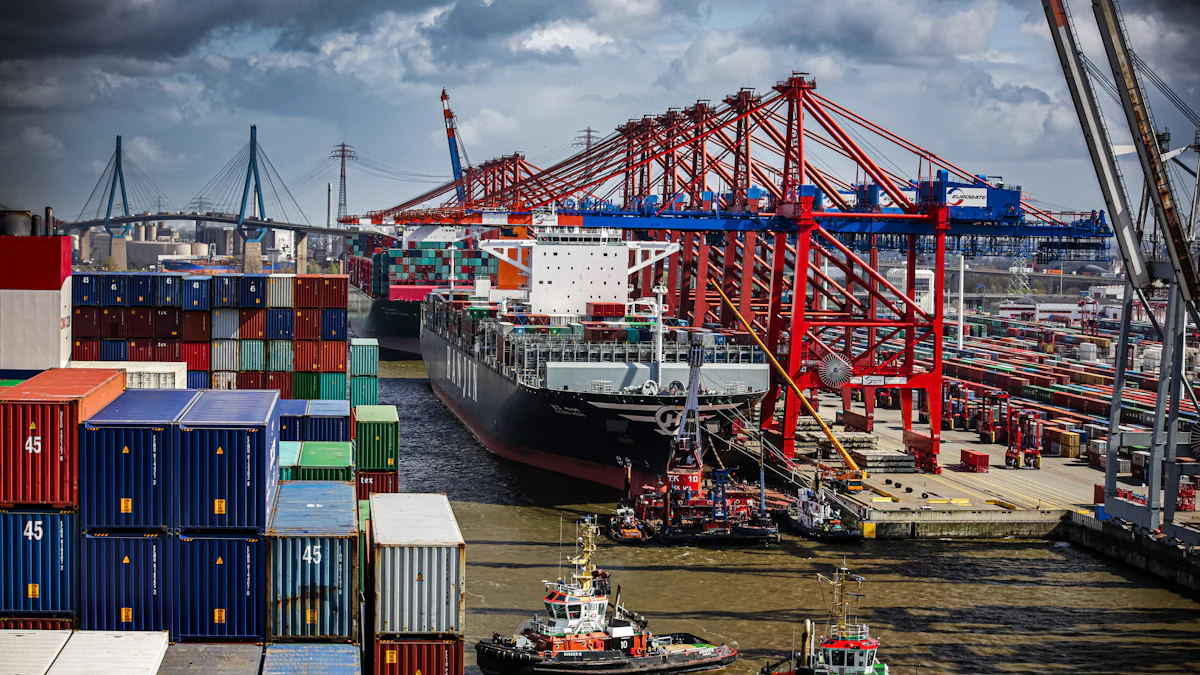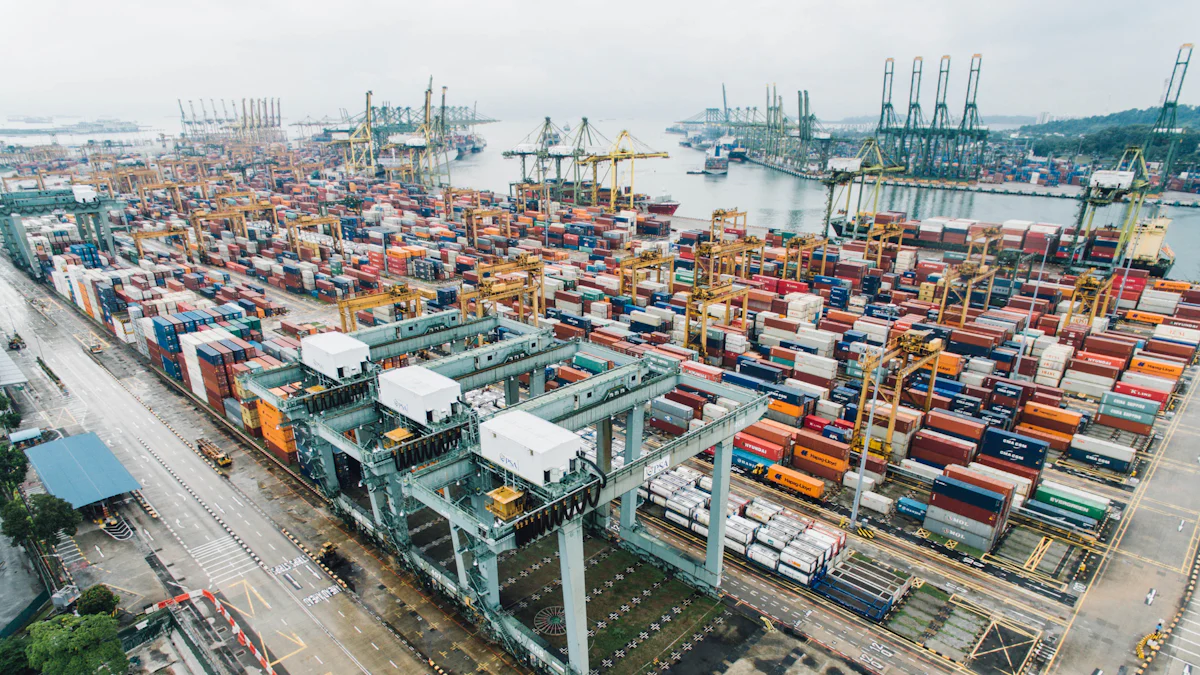Optimizing Your Supply Chain with Advanced Logistics Platforms

Supply chain optimization stands as a cornerstone for efficient business operations. Companies achieve significant cost savings and improved service quality through streamlined processes and cost-effective strategies. Logistics platforms play a pivotal role in transforming supply chain management by leveraging advanced technologies like AI, IoT, and data analytics. These platforms facilitate real-time tracking, smart inventory management, and predictive insights. Businesses experience enhanced efficiency, reduced lead times, and minimized wastage. Ultimately, these improvements lead to better business performance and customer satisfaction.
Understanding Advanced Logistics Platforms
Definition and Key Features
Logistics platforms revolutionize supply chain management by integrating advanced technologies. These platforms offer several key features:
Real-time tracking and visibility
Real-time tracking provides businesses with up-to-the-minute information about shipments. This feature enhances transparency and allows for proactive decision-making. Companies can monitor the exact location of goods, ensuring timely deliveries.
Automation and AI integration
Automation streamlines repetitive tasks, reducing manual errors. Logistics platforms leverage AI to optimize routes, schedules, and resource allocation. Predictive analytics enable businesses to anticipate potential issues and address them swiftly.
Data analytics and predictive insights
Data analytics transform raw data into actionable insights. Logistics platforms utilize big data to analyze trends, forecast demand, and improve inventory management. Predictive insights help companies make informed decisions that enhance operational efficiency.
Types of Advanced Logistics Platforms
Several types of logistics platforms cater to different aspects of supply chain management:
Transportation Management Systems (TMS)
Transportation Management Systems focus on optimizing transportation operations. TMS solutions manage carrier selection, route planning, and freight auditing. Businesses benefit from reduced transportation costs and improved delivery performance.
Warehouse Management Systems (WMS)
Warehouse Management Systems streamline warehouse operations. WMS solutions handle inventory tracking, order fulfillment, and space optimization. Efficient warehouse management leads to faster order processing and better inventory control.
Integrated Supply Chain Management Systems
Integrated Supply Chain Management Systems provide a holistic view of the entire supply chain. These systems integrate TMS, WMS, and other logistics functions into a unified platform. Businesses achieve seamless coordination across all supply chain activities.
Benefits of Using Advanced Logistics Platforms

Improved Efficiency and Productivity
Streamlined operations
Logistics platforms enhance operational efficiency by automating routine tasks. Automation reduces the need for manual intervention, leading to faster processing times. Businesses can allocate resources more effectively, ensuring optimal utilization.
Reduced manual errors
Automation minimizes human error in supply chain processes. Logistics platforms employ advanced algorithms to ensure accuracy in data entry and order fulfillment. This precision leads to fewer mistakes and higher reliability in operations.
Cost Savings
Optimized resource allocation
Logistics platforms enable businesses to allocate resources more efficiently. Advanced analytics provide insights into resource usage patterns, helping companies make informed decisions. This optimization results in significant cost savings over time.
Lower transportation and warehousing costs
Efficient route planning and inventory management reduce transportation and warehousing expenses. Logistics platforms use predictive analytics to forecast demand and optimize stock levels. These capabilities lead to lower storage costs and reduced fuel consumption.
Enhanced Customer Satisfaction
Faster delivery times
Real-time tracking features allow businesses to monitor shipments closely. Logistics platforms provide accurate delivery estimates, enabling quicker response times. Customers benefit from faster deliveries, enhancing their overall satisfaction.
Better order accuracy
Advanced systems ensure precise order processing and fulfillment. Logistics platforms utilize AI-driven checks to verify orders before dispatching them. This accuracy improves customer trust and loyalty by reducing instances of incorrect deliveries.
Implementing JUSDA's JusLink Platform

Assessing Your Current Supply Chain
Identifying pain points and inefficiencies
Businesses must first identify existing pain points and inefficiencies. Common issues include delays in shipment, inaccurate inventory levels, and high operational costs. Logistics platforms like JusLink can address these challenges effectively.
Setting clear objectives
Setting clear objectives is crucial for successful implementation. Objectives may include reducing lead times, improving order accuracy, or enhancing customer satisfaction. Clear goals help measure the impact of logistics platforms on supply chain performance.
Choosing JusLink for Your Needs
Evaluating features and capabilities
Evaluating the features and capabilities of JusLink ensures alignment with business needs. Key features include real-time tracking, AI-driven automation, and data analytics. Blockchain technology enhances transparency and security across the supply chain network.
Considering scalability and integration
Scalability is vital for growing businesses. JusLink offers scalable solutions that adapt to changing demands. Integration with existing systems minimizes disruptions during implementation. Compatibility with other logistics platforms ensures seamless operations.
Implementation and Training
Developing a rollout plan
A detailed rollout plan outlines each step of the implementation process. The plan should include timelines, resource allocation, and risk management strategies. Effective planning ensures a smooth transition to using advanced logistics platforms.
Training staff and stakeholders
Training staff and stakeholders maximizes the benefits of JusLink. Comprehensive training programs cover system functionalities, best practices, and troubleshooting techniques. Well-trained personnel enhance operational efficiency and leverage the full potential of logistics platforms.
Challenges and Key Considerations
Initial Investment and ROI
Cost-benefit analysis
Investing in advanced logistics platforms requires a thorough cost-benefit analysis. Businesses must evaluate the initial costs against potential long-term savings. This evaluation includes software purchase, implementation, and training expenses. Companies should also consider the reduction in operational costs due to increased efficiency.
Long-term financial planning
Long-term financial planning ensures that businesses can sustain the investment in logistics platforms. Companies need to project future savings from optimized operations and reduced errors. Financial plans should account for maintenance costs and potential upgrades. A well-structured plan helps secure funding and demonstrates the platform's value to stakeholders.
Integration with Existing Systems
Compatibility issues
Integrating new logistics platforms with existing systems often presents compatibility issues. Businesses must assess current software infrastructure to identify potential conflicts. Ensuring seamless integration requires collaboration between IT teams and platform providers. Proper assessment prevents disruptions during the transition phase.
Data migration strategies
Effective data migration strategies are crucial for successful integration. Companies need to transfer existing data accurately without loss or corruption. This process involves mapping old data formats to new ones supported by the logistics platform. Testing migration procedures before full-scale implementation minimizes risks.
Change Management
Overcoming resistance to change
Resistance to change is a common challenge when implementing new technologies. Employees may feel uncertain about adopting new systems. Addressing these concerns through clear communication and involvement in the process is essential. Providing training sessions helps employees understand benefits, reducing resistance.
Ensuring continuous improvement
Continuous improvement ensures that businesses fully leverage advanced logistics platforms' capabilities over time. Regular performance reviews identify areas for enhancement and optimization. Feedback loops involving staff at all levels contribute valuable insights for refining processes.
"Smart Transportation Initiatives in Supply Chain Optimization" highlights how technology revolutionizes manufacturing operations, enhancing collaboration among stakeholders.
Implementing such initiatives within logistics platforms fosters improved operational efficiency across supply chains.
In summary, addressing these challenges requires careful planning, effective communication, and ongoing evaluation of system performance.
Optimizing supply chains with advanced logistics platforms holds immense importance. Businesses must take actionable steps to implement these technologies. Staying competitive in the evolving market requires continuous improvement and adaptation. Advanced logistics platforms offer significant benefits for efficiency, cost savings, and customer satisfaction. Companies should embrace these tools to enhance their supply chain operations and achieve long-term success.
See Also
Cloud Tech Solutions: Enhancing Supply Chain Efficiency
Tomorrow's Logistics Revolution: AI in Supply Chain
Revealing 5 Cutting-Edge Supply Chain Optimization Methods
